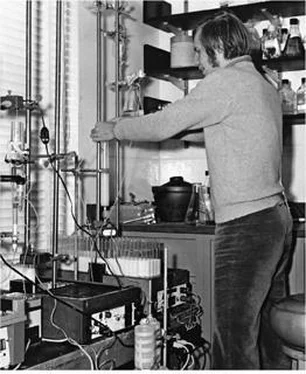James Watson - AVOID BORING PEOPLE - Lessons from a Life in Science
Здесь есть возможность читать онлайн «James Watson - AVOID BORING PEOPLE - Lessons from a Life in Science» весь текст электронной книги совершенно бесплатно (целиком полную версию без сокращений). В некоторых случаях можно слушать аудио, скачать через торрент в формате fb2 и присутствует краткое содержание. Жанр: Биографии и Мемуары. Описание произведения, (предисловие) а так же отзывы посетителей доступны на портале библиотеки ЛибКат.
- Название:AVOID BORING PEOPLE: Lessons from a Life in Science
- Автор:
- Жанр:
- Год:неизвестен
- ISBN:нет данных
- Рейтинг книги:5 / 5. Голосов: 1
-
Избранное:Добавить в избранное
- Отзывы:
-
Ваша оценка:
- 100
- 1
- 2
- 3
- 4
- 5
AVOID BORING PEOPLE: Lessons from a Life in Science: краткое содержание, описание и аннотация
Предлагаем к чтению аннотацию, описание, краткое содержание или предисловие (зависит от того, что написал сам автор книги «AVOID BORING PEOPLE: Lessons from a Life in Science»). Если вы не нашли необходимую информацию о книге — напишите в комментариях, мы постараемся отыскать её.
AVOID BORING PEOPLE: Lessons from a Life in Science — читать онлайн бесплатно полную книгу (весь текст) целиком
Ниже представлен текст книги, разбитый по страницам. Система сохранения места последней прочитанной страницы, позволяет с удобством читать онлайн бесплатно книгу «AVOID BORING PEOPLE: Lessons from a Life in Science», без необходимости каждый раз заново искать на чём Вы остановились. Поставьте закладку, и сможете в любой момент перейти на страницу, на которой закончили чтение.
Интервал:
Закладка:
At their best, universities promote outside their walls the spirit and values that enable the proper conduct of their work within those walls. Going to the College of the University of Chicago completed my conversion to a life devoted to discovery of the natural world for its own sake, the impulse first stirred by looking for birds with my father. Yet whatever great advance in knowledge a university may bring us, it will fail in its ultimate mission if it allows concerns such as self-marketing and customer satisfaction—concerns of the service institutions that most universities are fast becoming—to overtake the pure good of pursuing truth. And this is particularly important to science, in which the race, though it may be to the swift, is never over.
Before leaving Derek's temporary office I remarked that the time was surely not far off when academia would have no choice but to hand political correctness back to the politicians. Since 1978, when a pail of water had been dumped over E. O. Wilson for saying that genes
influence the behavior of humans as well as of other animals, the assault against behavioral science by wishful thinking has remained vigorous. But as science is able to better prove its hypotheses, such irrationality must recede or betray itself as such. In showing that human genes do matter, behavioral biologists will no longer be limited to comparisons of fraternal and identical twins. Soon the cost of sequencing the A's, T's, G's, and C's of individual DNA molecules will drop to a thousandth of what it has been, thereby transposing our studies of behavioral differences to the much more revealing molecular level. DNA messages extracted from, say, many hundreds of psychopaths can then be compared to equivalent numbers of DNA messages from individuals prevented by their consciences from habitually lying, stealing, or killing. Specific DNA sequences consistently occurring only in psychopaths will allow us to pinpoint the genes whose malfunctions are likely to produce psychopathy. The thought that some people might be born to grow up wicked is inherently upsetting. But if we find such behavior to be innate, the integrity of science, no less than that of ethics, demands that we let the truth be known.The relative extents to which genetic factors determine human intellectual abilities will also soon become much better known. At the etiological heart of much of schizophrenia and autism are learning defects resulting from the failure of key brain cells to link up properly to each other. As we find the human genes whose malfunctioning gives rise to such devastating developmental failures, we may well discover that sequence differences within many of them also lead to much of the observable variation in human IQs. A priori, there is no firm reason to anticipate that the intellectual capacities of peoples geographically separated in their evolution should prove to have evolved identically. Our wanting to reserve equal powers of reason as some universal heritage of humanity will not be enough to make it so. Rather than face up to facts that will likely change the way we look at ourselves, many persons of goodwill may see only harm in our looking too closely at individual genetic essences. So I was not surprised when Derek asked apprehensively how many years would pass before the key genes affecting differences in human intelligence would be found. My
back-of-the-envelope answer of “fifteen years” meant Summers's then undetermined successor would not necessarily need to handle this very hot potato.Upon returning to the Yard, however, I was not sure that even ten years would pass.
Cast of Characters
With Swedish pro Carl Wermee at Piping Rock Club in Locust Valley, New York
George Beadle(1903-1989)—After heading the Biology Division at Caltech from 1946, in 1961 he became the president of the University of Chicago, so serving until he was sixty-five. Then, as director of the Institute for Biomedical Research of the American Medical Association, he resumed research on the origins of modern corn. In 1982 he moved with his wife, Muriel, a writer, to a retirement village in Pomona, California.
Seymour Benzer(b. 1921)—In 1976, he moved from Purdue to Caltech, where he exchanged phage for Drosophila, using it to effectively probe the genetic basis of behavior and neurodegeneration.
Derek Bok(b. 1930)—After retiring as Harvard president in 1991, he remained highly involved with higher education, writing six books on the topic: Our Underachieving Colleges (2005), Universities in the Marketplace (2003), The Shape of the River (1998), Universities and the Future of America (1990), Higher Learning (1986), and Beyond the Ivory Tower (1982). His recent research focuses on the U.S. government's approach to domestic problems, about which he has written two books, The State of the Nation (1997) and The Trouble with Government (2001). Following the resignation of Larry Summers, Derek returned in July 2006 to Harvard to serve as acting president for one year.
Sir (William) Lawrence Bragg(1890-1971)—He left his post as director of the Cavendish Laboratory at Cambridge University in 1954 to head the Royal Institution in London, which his father, William Henry Bragg, had directed between 1930 and 1942.Sydney Brenner(b. 1927)—Upon the retirement of Max Perutz, he became head of the Laboratory of Molecular Biology at Cambridge, serving until 1986. By then he was devising methodologies for studying the human genome, early on seeing the importance of making DNA copies of cellular messenger RNA molecules. Increasingly he worked outside the United Kingdom, at the Scripps Research Institute in La lolla, California, at the Molecular Sciences Institute that he founded in Berkeley, and in Singapore as a biotechnology adviser to its government. In the United Kingdom, he and his wife, May, maintain their primary residence in the town of Ely, to the north of Cambridge.
Jacob (Bruno) Bronowski(1908-1974)—One of the early research fellows of the Salk Institute for Biological Studies, he later spent two years (1971-1972) filming the justly famous BBC series The Ascent of Man, which traced the history of science and mankind from prehistoric times and which aired just shortly before his tragically premature death from heart failure.
McGeorge Bundy(1919-1996)—In 1966 he left the Lyndon Johnson White House to direct the Ford Corporation in New York for twelve years. During the following ten years he taught history at New York University, subsequently becoming a scholar-in-residence at the Carnegie Corporation, where he chaired its Committee on Reducing Nuclear Dangers.
Dick Burgess(b. 1942)—Following two years as a postdoctoral fellow in Geneva, Switzerland, he joined the faculty of the University of Wisconsin, Madison, where he is currently the James D. Watson Professor of Oncology.
John Cairns(b. 1922)—After leaving Cold Spring Harbor Laboratory in 1972, he headed the Mill Hill Laboratory of the Imperial Cancer Research Fund outside London until 1980. He then recrossed the Atlantic to join the Harvard School of Public Health. Upon his retirement in 1991, he and his wife, Elfie, moved back to the United Kingdom, living outside Oxford.
Mario Capecchi(b. 1937)—After finishing his Ph.D. work, he stayed on at Harvard as assistant and then associate professor of biochemistry until 1973,
when he moved to the University of Utah, where he has remained since. There he has pioneered gene targeting in mouse embryo-derived stem cells.Erwin Chargaff(1905-2002)—More a writer than a scientist in the later part of his career, he published several books, including the autobiographical Hera-clitean Fire: Sketches from a Life Before Nature. He remained on the Columbia faculty until his retirement in 1974.
Читать дальшеИнтервал:
Закладка:
Похожие книги на «AVOID BORING PEOPLE: Lessons from a Life in Science»
Представляем Вашему вниманию похожие книги на «AVOID BORING PEOPLE: Lessons from a Life in Science» списком для выбора. Мы отобрали схожую по названию и смыслу литературу в надежде предоставить читателям больше вариантов отыскать новые, интересные, ещё непрочитанные произведения.
Обсуждение, отзывы о книге «AVOID BORING PEOPLE: Lessons from a Life in Science» и просто собственные мнения читателей. Оставьте ваши комментарии, напишите, что Вы думаете о произведении, его смысле или главных героях. Укажите что конкретно понравилось, а что нет, и почему Вы так считаете.












